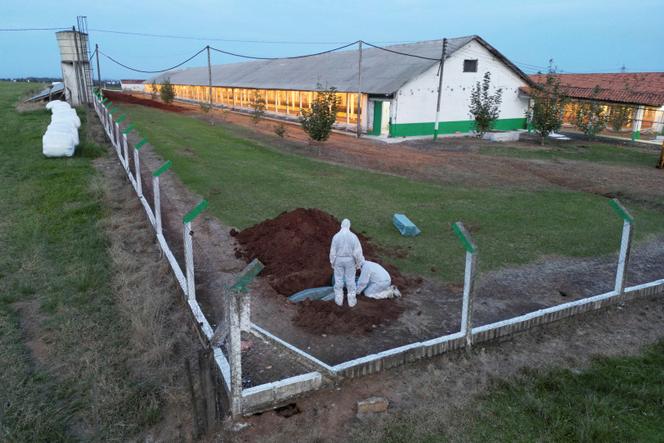


After devastating the poultry industry in the United States, avian flu has now reached Brazil, the world's third-largest producer and leading exporter of poultry. Until now, the country had only detected cases among wild birds. On Thursday, May 15, Brazil's Ministry of Agriculture announced that an outbreak of avian flu had been discovered at a farm in Montenegro, in the southern state of Rio Grande do Sul, affecting 17,000 birds. Most of the animals succumbed to the highly contagious virus, and the remainder were culled. 70,000 eggs were destroyed to prevent the epidemic from spreading.
International reactions came swiftly. China, the main importer of Brazilian chicken and responsible for 10.5% of the country's poultry exports, suspended its purchases for 60 days. In quick succession, 16 other countries – including Canada, South Africa, Chile, Argentina, Uruguay, Mexico and South Korea, as well as the European Union member states (since May 19) – also temporarily interrupted imports from the South American country.
These restrictions could have serious consequences for a sector that accounts for 0.9% of Brazil's gross domestic product. In 2024 alone, the country produced 15 million metric tons of poultry and generated 106 billion reais (€16.5 billion), according to the Associação Brasileira de Proteína Animal (Brazilian Association of Animal Protein). Exports, which represent 35% of total production, brought in more than $9.9 billion (€8.77 billion) − record results, driven by the depreciation of the real that made Brazilian products more competitive, in addition to strong international demand.
You have 53.7% of this article left to read. The rest is for subscribers only.
